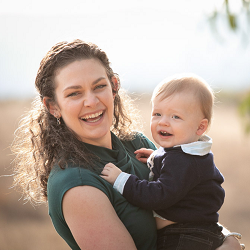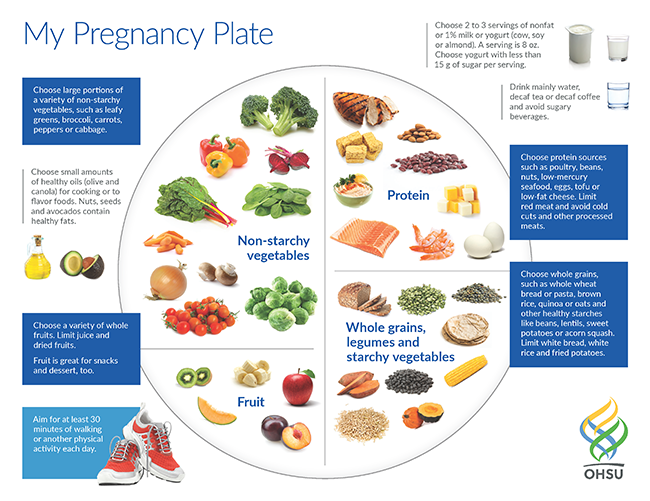
You’re Pregnant! Now What?
5 Things To Do After Finding Out You’re Pregnant
It’s official, you’re going to be a parent! A positive pregnancy test can trigger big feelings, whether you were trying for a baby or not. You may feel excited about your new role, curious about your little one, anxious about how your life will change, and any number of equally valid emotions. Whatever you’re feeling, take some time to honor and process those feelings.
After your news has sunken in, one important question is sure to pop up: what’s next? There are a number of things you can do during pregnancy (e.g., birth announcements, gift registries, baby showers, and more). But there are really only a few things you need to do before your little one arrives.
Here are our five recommendations for what to do first after finding out you’re pregnant.

1. Schedule your first prenatal appointment
You’ve taken an at-home pregnancy test (or five) and the results are positive. Congratulations! Your immediate next step is to confirm your pregnancy and start routine prenatal care with your general practitioner, obstetrician, or midwife. In an ideal world, your first appointment will occur when you’re around 6-8 weeks pregnant.
Depending on where you live, it can take some time to get in to see your preferred provider. So, you’ll want to call and schedule your appointment right away. If you can’t get an appointment within your first 8 weeks of pregnancy, consider scheduling your first appointment with a different provider. You can always transfer your care to your preferred provider (or group of providers) later in pregnancy. This can also give you time to “shop around” before you decide on your provider and where you’ll give birth.
Routine prenatal health care supports you with having a healthy pregnancy and reduces the risk of pregnancy complications. A healthy pregnancy reduces the risk of complications during birth as well as the risk of complications for your fetus and infant.
During your pregnancy, you can expect to have about 10 – 15 prenatal appointments. Generally, that works out to one prenatal visit every four weeks for the first 28 weeks, one prenatal visit every two weeks until 26 weeks, and then one prenatal visit every week until your baby is born. The majority of your visits will be uneventful, but they are anything but a waste of time. Every prenatal visit is a crucial opportunity to assess your and your baby’s well-being, learn important information, and get the support you deserve.
If at any point during your pregnancy, you don’t feel supported by your chosen provider, trust those instincts! You have a right to feel centered, informed, heard, and respected by your medical team. It’s never too late to change providers if needed.
2. Evaluate your diet and start taking prenatal vitamins
During pregnancy, eating well supports the growth of your baby, supports the extra demands on your body, and helps you to maintain a healthy weight. So, what does “eating well” actually look like?
Clinical dietitian Christie Naze (R.D., C.D.E.) developed “My Pregnancy Plate” (shown right) to help illustrate what it looks like to eat nutrient-dense, well-balanced food during pregnancy.
As tempting as it is, try not to use your pregnancy as an excuse to binge on junk food and eat double the amount you normally would. “Eating for two” can actually average out to about 300 – 400 extra calories per day for one fetus, about 600 extra calories for twins, and about 900 extra calories for triplets.
Having a hard time eating without running to the bathroom? For those times when you’re feeling nauseated and nothing sounds good, your prenatal vitamins are especially important. They’ll help to take some of the pressure off of your diet by supplying your body with the vitamins and minerals you and your baby need during pregnancy. On those days, any calories are better than none!
Remember, pregnancy is a marathon, not a sprint. So, take it one day at a time! Aim for a nice variety of foods on the good days, try to make the healthiest choices you can on the hard days, and enjoy the occasional guilt-free splurge. If you’re worried about what or how much you’re eating, talk to your doctor or seek out a prenatal nutritionist for support.
3. Move your body
Every pregnancy (and pregnant person) is different. Some people crave exercise and movement, while others are totally turned off just by the thought of it. Regardless of where you fall on that spectrum, regular activity is beneficial for you and your baby, especially if you are healthy and your pregnancy is considered “normal.”
According to the American College of Obstetrics and Gynecology, regular activity helps with everything from back pain and constipation to healthy weight gain and blood flow. It may even decrease your risk of gestational diabetes, preeclampsia, and cesarean birth.
Exercising is also a great way to care for your mental health! It helps us release stress, reduce anxiety, and boost feel-good endorphins. And a strong core and flexible pelvic floor can help you cope with labor and push more effectively. Talk about a win-win-win!
So, how much should you exercise? ACOG suggests that “at least 150 minutes of moderate-intensity aerobic activity every week” is ideal, which equates to roughly 30 minutes of movement 5 days a week. However, if you’re new to exercise (or generally just feeling unmotivated due to discomfort and morning sickness), it’s important to start slow and build up to that goal.
Walking, prenatal yoga or pilates, and swimming are all great prenatal workouts if you aren’t sure where to start. If you already have an established routine, your OB or midwife can help you decide if it’s safe to continue and what things you may want to avoid.
4. Don’t neglect your mental health
Check in with yourself. How are you feeling? Are you excited? Nervous? Worried? Anxious? All of the above? Pregnant people are often depicted as glowing and blissfully happy, but the truth is, many people experience pregnancy as an emotional rollercoaster. Becoming a parent is a major transition, pregnant bodies can feel totally foreign, and your hormones are fluctuating. These are just a few reasons why it’s just as important to take care of your mental health as it is your physical health, especially while your hormones are fluctuating and your emotions seem to be riding a rollercoaster.
To help combat perinatal mood disorders (including anxiety and depression) we recommend creating a mental health strategy. It doesn’t haven’t to be complicated. It just has to be rejuvenating (not performative)! So, choose things that are authentic to you–not someone else’s Instagram feed.
Not sure what fills your cup? Pregnancy is a great time to experiment, so you have some tried and tested options to help you combat parental burnout after your baby arrives. Here are some ideas to help you get started:
- Spend time outside
- Talk or write to loved ones
- Journal
- Start a new hobby
- Go on a social outing
- Take a nap or rest
- Watch a feel-good movie or show
- Read a book or listen to an audiobook or podcast
- Sing, dance, or play a musical instrument
- Go for a drive
- Explore someplace new
- Learn something new

5. Start assembling your Parenting Village
We’ve all heard the phrase, “It takes a village.” Spend some time thinking about your own village and your expectations around support. Build a “little black book” of contacts to help support you now as you navigate pregnancy, in the weeks and months after your baby arrives, and in the future when you go back to work (if applicable).
Your village should include personal contacts (e.g., that friend you can call for a good laugh or cry and that family member who will come over to help you fold laundry or cook) as well as professional contacts (e.g., parental transition coach, doula, lactation consultant, mental health counselor, pediatrician, etc.)
Thinking about who you want to support you when you might need them, and how they can be there for you is a great way to start you building your team of support in these initial weeks. Think about who you can lean on for support and guidance and support as you navigate your first trimester and figure out how to announce your pregnancy.
Many people will share their news with their inner circle more immediately and wait until miscarriage risks are lower to share with their broader support circle. However, when and how you share your news is a personal choice. So, announce in the way that feels the most authentic to you, and lean on your loved ones for all the support you deserve!
What do I do next?
After you’ve taken a moment to let things sink in, you’ll be ready to start asking those deeper questions about how to prepare for what comes next: childbirth, parenting, and how best to prepare. Our team of caring, professional coaches is here to help! Supporting growing families through the transition into parenthood is our passion. Click here to set up a coaching call and learn more.
- About the Author
- Latest Posts
Sources:
https://www.acog.org/womens-health/faqs/exercise-during-pregnancy
https://www.acog.org/womens-health/faqs/nutrition-during-pregnancy
https://www.nichd.nih.gov/health/topics/pregnancy/conditioninfo/prenatal-care
- About the Author
- Latest Posts

Richelle’s passion is supporting growing families through the unpredictable and transformative journey of pregnancy and the first years of parenthood. In 2019, she set out with a vision to create a modern-day parenting village: From Pregnant to Parent. In addition to being our founder, she is a certified doula, childbirth and lactation educator, sleep coach, and RETAIN parental leave coach. When she isn’t working, she enjoys spending time with her husband and two kiddos around their home in Marin County (San Francisco Bay Area).
November 20, 2022
Richelle Clayton
A Note About Links: Our blog is reader supported. When you buy a product through the links on our site, we may earn a small affiliate commission. We promise, we only recommend products we genuinely like. Purchasing through our links doesn't effect the price you pay, but it does help to support our small business.
Leave a Reply Cancel reply
FTC Affiliate Disclosure: When you purchase through the links on our site, we may earn an affiliate commission at no extra cost to you. By doing so, you don't pay a higher price, but you do help to support our small business. If we ever promote something that was gifted to us, we'll be sure to say so. Regardless of whether or not we are earning a commission, we promise, we will only ever recommend products we genuinely like and use (or would use) ourselves.
Follow Me
On Instagram
Tips | Updates | Behind the Scenes
CLick Here
RESOURCES
RESOURCES
CONTACT
CONTACT
FOR PARENTS
FOR PARENTS
FOR PREGNANCY
FOR PREGNANCY
GET TO KNOW ME
HOME

[…] the very end of my first pregnancy, I remember going to bed each night thinking, “This might be my last full night’s sleep for […]